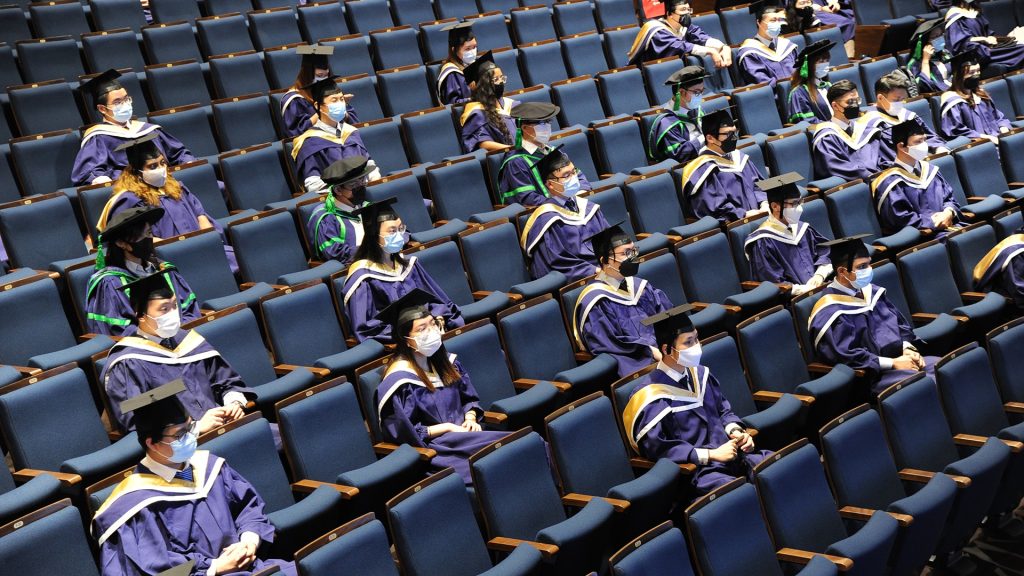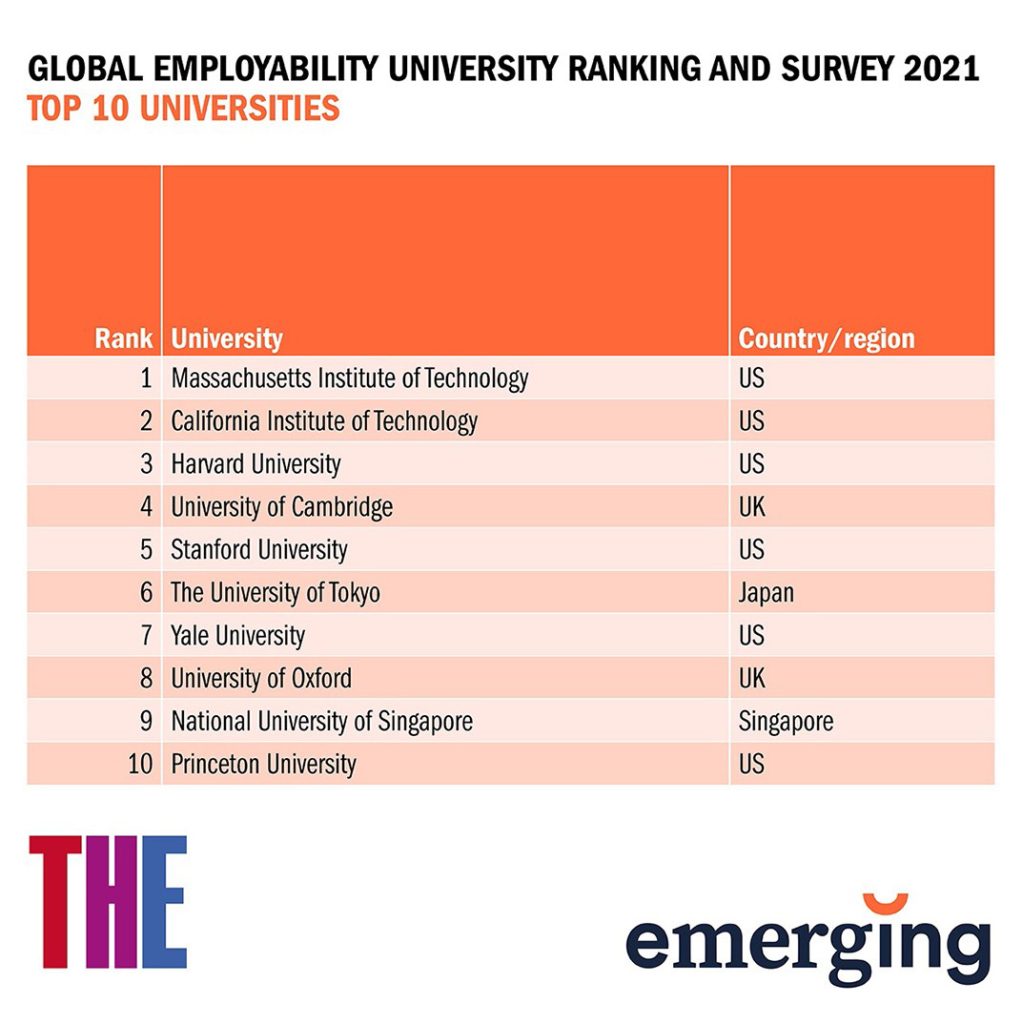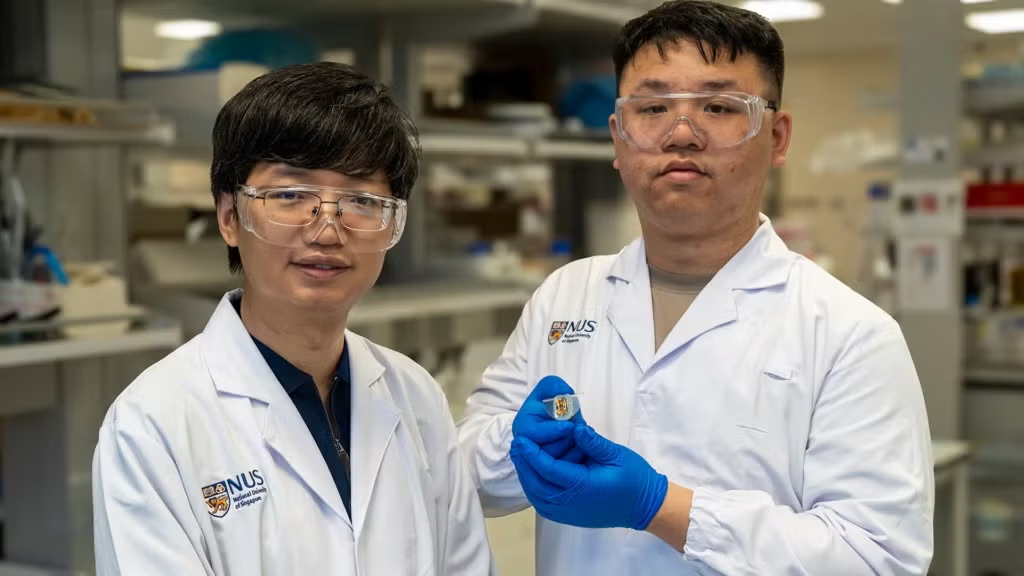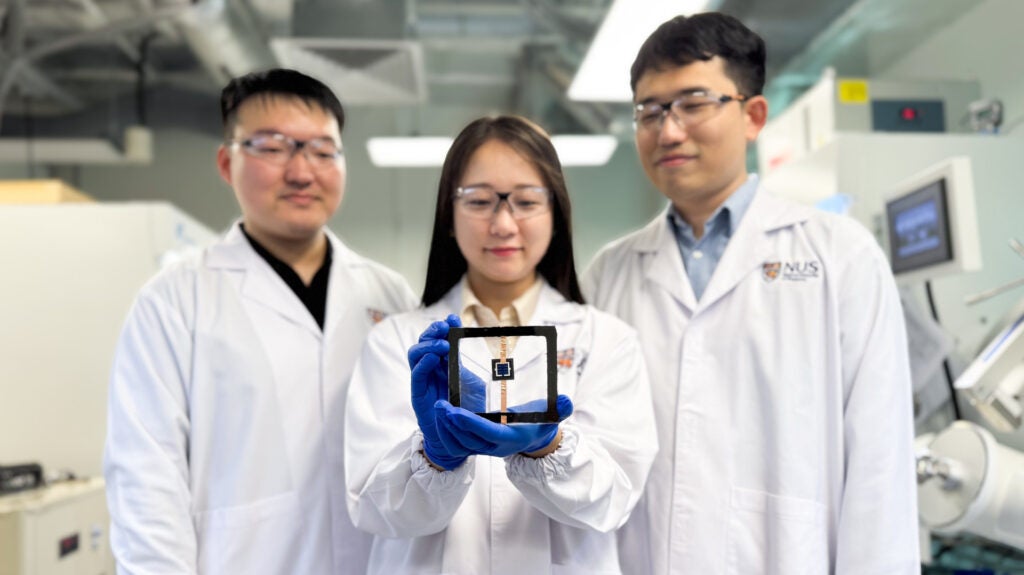
NUS graduates are regarded as the ninth most employable in the world, according to the 2021 edition of the Global Employability University Ranking and Survey.
The University maintains its ranking from last year and continues to be the only Singapore university to be placed in the top 10. It also performed well in Asia – placed behind only the University of Tokyo which came in sixth place.
The survey showed that for the first time, soft skills and digital literacy have become the most important competencies employers look out for since the pandemic hit; rising to the top over the course of the COVID-19 pandemic from being fourth most important just two years ago.
NUS Chief Communications Officer Ms Ovidia Lim-Rajaram said, “We are delighted close to 11,000 employers around the world have ranked NUS among the top 10 for global employability for the second year running. This recognition places our graduates among the most sought-after, globally. It also affirms our belief in a broad-based, experiential education that embraces subject mastery, international exposure, as well as 21st century essentials such as cultural understanding, critical thinking, data and digital literacy. We will continue to focus our efforts on nurturing adaptive and resilient graduates with deep and real-world expertise in and across disciplines, to prepare them for new-generation jobs, and help them thrive in a disruptive and uncertain world.”
Commissioned by international Paris-based HR consultancy Emerging, the annual poll was conducted by consulting and polling institute Trendence and published by Times Higher Education. In its eleventh year, the survey asks employers to list the universities that best prepare students for the workplace.

Some 118,196 votes were canvassed from 10,928 international recruiters and managers, with the top 250 universities for employability across 44 countries being ranked as a result.
The ranking is based on six key drivers identified by businesses as the main contributors to creating employable graduates. They are:
- Academic excellence
- Digital performance (innovative learning methods, specialist training on digital jobs)
- Focus on work (entrepreneurial environment, relevant work experience as part of the curriculum)
- Internationalism
- Soft skills and digital literacy, and
- Specialisation (technical and research expertise).
“The annual GEURS employability ranking specifically addresses the student need to identify those universities that offer the best prospects for future employment. It provides them with the reasons behind recruiters’ choices and shows that indicators such as digitalisation, specialisation or soft skills are increasingly important, much more so than the prestige of a university’s name,” said Ms Sandrine Belloc, Managing Partner of Emerging.
Preparing graduates for the workplace
NUS is doubling down on efforts to position its graduates for success in an increasingly competitive and disruptive workplace – offering them more breadth and depth in their education and providing them with the relevant skills and opportunities to prepare for their careers.
Earlier this year, the University launched the NUS career+ mobile app which leverages artificial intelligence and big data to help students better plan their education and careers. Based on a student’s academic record and career interests, the app generates an individualised skills profile and recommends suitable modules they may take to bridge the skills gap.
Close to a thousand exciting job and internship opportunities were also offered by 243 participating companies at the NUS Career Fest 2021 that was organised earlier this year by the NUS Centre for Future-ready Graduates (CFG). Virtual industry networking sessions proved a hit as students and employers engaged in one-to-one or group chats using NUS TalentConnect, the tailored careers platform for NUS students and alumni.
Recognising the unique challenges faced by young women entering the workforce, CFG also ran a pilot course of the Women’s Professional Development Programme for NUS final-year female students to equip them with critical skills, attributes and mindsets before they embark on their first careers. Students underwent sessions on human-centred design, personal branding, advocacy, managing difficult conversations, and building a support network.
* Article from NUS News





